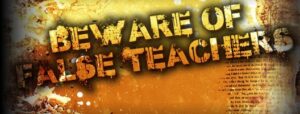
The Hate Crime and Public Order bill was introduced to the Scottish Parliament on April 23rd and is beginning to gain a lot of attention from people in various walks of life. From theater writers and actors to police officers to bishops within the Catholic church, people are becoming concerned about the language and scope of the bill that is being discussed.
Despite the fact that there are already laws on the books to protect certain classes of individuals from hate crimes, an updated bill is being considered. The Overview of the legislation states that the intent of the bill is threefold. "It updates these existing laws and pulls most of these laws into one bill. It also adds to the groups currently specifically protected by hate crime laws."
Additionally, "this Bill adds age to that list and allows sex to be added at a later date."
The aspect of the bill that seems to be most ambiguous is that which "creates a new crime of stirring up hatred against any of the protected groups covered by the Bill."
An interesting site note of the bill is that it also "abolishes the offence of blasphemy which has not been prosecuted in Scotland for more than 175 years."
The Scottish Police Federation which according to the BBC represents 98% of officers within Scotland took advantage of the opportunity given to express their opinion on the proposed bill before the deadline of July 24th.
The federation expressed concerns that the bill would lead to "a significant increase in police workload and demand" caused by rules written in a manner that is "too vague to be implemented." They additionally stated that these rules "could lead to police officers determining free speech and thereby devastate the legitimacy of the police service."
The theater, which has generally found leniency under free speech provisions, at least for the performers themselves, is even concerned by the language of the proposed bill.
Iain Daniels wrote in an August 4th article for The Stage that, "Inevitably, writers, producers, directors and performers will want to challenge their audiences when addressing burning issues of the day: Donald Trump’s presidency, trans rights, Black Lives Matter. The use of controversial – even abhorrent – characters for whom the audience develops sympathy is a writing device as old as theatre itself."
Now, they are concerned that those very same time honored traditions will be potentially deemed crimes as someone may determine them to be “inflammatory.” Daniels stated, "The bill does not require an intention to commit the offence: all that is needed for arrest and prosecution is the belief that the performance may stir up hatred."
According to an article posted by The National, race is the one characteristic where "insulting" could be considered a criminal offense. It goes on to praise the writers of the proposed legislation for seeing cause to allow race to stand alone in this manner as much of what is seen as hate crimes within Scotland are race related.
While acknowledging that there are many concerned with the bill's potential to infringe on free speech, The National sees a distinction as "expressing disapproval is not, of itself, an offence of stirring up hatred providing it is not done in a way that is threatening or abusive."
Bishops within the Catholic Church though, are raising concerns about the vague nature of some of the language stating that the “low threshold” in the proposed new laws “could render material such as the Bible ... as being inflammatory under the new provision.”
One of the concerns they expressed was over lack of a clear definition stating, “how hatred is defined is not clear which leaves it open to wide interpretation [and] could lead to vexatious claims having to be dealt with by police.”
While their opinions concerning the proposed bill reaffirmed the biblical truth that a person's gender is not “not fluid and changeable,” they acknowledge that proposed legislation “must be robust enough to protect the freedom to disagree.”
The Scottish Parliament is scheduled to vote on the bill to determine whether or not it should proceed through their processes towards law by December 18, 2020.



